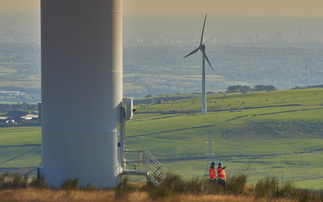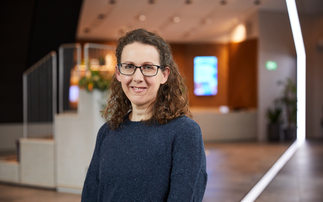BusinessGreen takes a look at SDG4 and the pledge to 'ensure inclusive and equitable quality education and promote lifelong learning opportunities for all'
Targets
4.1 By 2030, ensure that all girls and boys complete free, equitable and quality primary and secondary education leading to relevant and effective learning outcomes.
4.2 By 2030, ensure that all girls and boys have access to quality early childhood development, care and pre-primary education so that they are ready for primary education.
4.3 By 2030, ensure equal access for all women and men to affordable and quality technical, vocational and tertiary education, including university.
4.4 By 2030, substantially increase the number of youth and adults who have relevant skills, including technical and vocational skills, for employment, decent jobs and entrepreneurship.
4.5 By 2030, eliminate gender disparities in education and ensure equal access to all levels of education and vocational training for the vulnerable, including persons with disabilities, indigenous peoples and children in vulnerable situations.
4.6 By 2030, ensure that all youth and a substantial proportion of adults, both men and women, achieve literacy and numeracy.
4.7 By 2030, ensure that all learners acquire the knowledge and skills needed to promote sustainable development, including, among others, through education for sustainable development and sustainable lifestyles, human rights, gender equality, promotion of a culture of peace and non-violence, global citizenship and appreciation of cultural diversity and of culture's contribution to sustainable development.
4.A Build and upgrade education facilities that are child, disability and gender sensitive and provide safe, non-violent, inclusive and effective learning environments for all.
4.B By 2020, substantially expand globally the number of scholarships available to developing countries, in particular least developed countries, small island developing States and African countries, for enrolment in higher education, including vocational training and information and communications technology, technical, engineering and scientific programmes, in developed countries and other developing countries.
4.C By 2030, substantially increase the supply of qualified teachers, including through international cooperation for teacher training in developing countries, especially least developed countries and small island developing States.
Progress to date
As with health the march towards universal access to education has delivered "remarkable successes" since the turn of the century, according to the UN Development Programme.
The total enrolment rate for primary education in developing regions reached 91 per cent in 2015 and continues to rise, while the number of children out of school globally has dropped by almost half since 2000. Even when data from the least developed countries is included the overall participation rate in early childhood and primary education has risen from 63 per cent in 2010 to 70 per cent in 2016. As a result global literacy rates have experienced a "dramatic increase".
However, progress on education also mirrors that of health in so far as its distribution is highly uneven and the least developed countries continue to battle with significant challenges.
The UN's latest SDG progress report states that "disparities in education along the lines of gender, urban-rural location and other dimensions still run deep, and more investments in education infrastructure are required particularly in LDCs".
Participation rates in primary education fall as low as 41 per cent in sub-Saharan Africa and even where formal education is available problems remain. It is estimated 617 million or 58 per cent of children and adolescents of primary and lower secondary school age worldwide are not achieving minimum proficiency levels in reading and mathematics. Around two-thirds of them do attend school, but then either drop out or fail to learn basic skills.
Infrastructure challenges also continue to dog attempts to drive educational progress. For example, data from 62 countries from between 2001 and 2015, revealed only 12 countries show parity between urban and rural children achieving minimum proficiency levels in reading or mathematics at the end of primary education. In 2016, only 34 per cent of primary schools in the Least Developed Countries had electricity and less than 40 per cent were equipped with basic handwashing facilities.
Business implications
SDG4 is one of the goals where the direct involvement of business is at its least pronounced, but at the same time the private sector has a massive interest in seeing rapid improvements in global education delivered. The technologies, infrastructure, and business models required to deliver on the wider SDGs are hugely dependent on an educated and skilled workforce, while economic growth and new markets are similarly reliant on an educated population. As such, it is arguable that the targets for SDG4 should have more explicitly acknowledged the role of businesses in supporting and providing lifelong education and skills development.
Moreover, businesses have a clear role to play in providing the tax base for universal, high quality education, and delivering the necessary supporting infrastructure.
They also have a direct role in supporting target 4.4, which pledges to "substantially increase the number of youth and adults who have relevant skills, including technical and vocational skills, for employment, decent jobs and entrepreneurship". The target points to the wider adoption of the life-long learning concept by employers and closer co-operation between businesses and schools and universities.
Equally, target 4.7 and its pledge to help people "acquire the knowledge and skills needed to promote sustainable development" requires the wider economy to provide the right supporting environment in which students can learn about environmental risks and the value of sustainable development, gender equality, and human rights.
Business Risks
Almost all the risks associated with SDG4 arise from a failure to deliver on the goals.
Some low tax ideologues might baulk at any tax hikes required to extend and upgrade educational infrastructure, but overall effective and universal education is such a clear net benefit to the economy that the biggest education-related risks businesses face centre on governments failing to improve skills bases and tackle gender disparities.
There is, however, a potential risk for businesses in the kind of education offered. Basic literacy and numeracy have to be a foundation for a wider push to provide people with the skills required to drive the rapid development of a sustainable economy. But beyond that significant improvements in science, technology, engineering, and maths training, as well as a wider understanding of environmental risks and better media and political literacy, are likely to be critical to the delivery of the SDGs.
Business opportunities
Obvious indirect business opportunities arise from the emergence of more educated populations, which will by definition drive economic growth and provide a boost for information-based markets in particular. There are plenty of products you simply can not sell to people who can not read.
Moreover, improved skills bases are critical to driving economic productivity, especially in the high tech industries that will shape the 21st century.
Equally, direct commercial opportunities will flow from the development of improved educational infrastructure, from books and IT to buildings and green spaces.
More specifically, target 4.4's commitment to "substantially increase the number of youth and adults who have relevant skills" provides all businesses with an opportunity to revisit their training and educational policies and ask if they are doing enough to support and develop the workforce needed to drive sustainable development.
Closer co-operation with schools and universities, apprenticeships, and wider training programmes all provide businesses with a chance to support SDG4 and directly tackle current and future skills gaps, while driving R&D programmes in directions that can ultimately deliver commercial breakthroughs.









